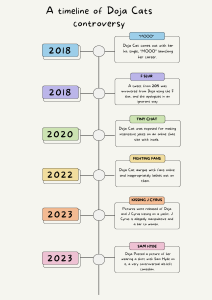Sleep deprivation negatively affects academic performance
May 4, 2016
At 7:20 in the morning the first bell rings, signaling entrance to the academic wing and the beginning of the school day. Hoards of high school students fill the halls with their zombie walk and tired faces. They sip their coffee and blare their music, doing anything to wake themselves up. It is clear from looking around that students do not get enough sleep. Unfortunately, this lack of sleep has been proven to negatively affect students’ learning.
Over the past few years, studies, such as those done by Dr. Philip Alapat, Dr. Sangeeta Chakravorty, and professors Mary Carskadon and Amy Wolfson, have been done on students of all ages to discover how sleep deprivation affects them. What they found is shocking; lack of sleep is very harmful to your body, it affects your memory, recovery times, health, and can even lead to a potential sleep disorder. It also affects younger students more than older students. Elementary and middle school students who do not get enough sleep have more behavioral and emotional issues than their non sleep deprived peers. These issues can result in damaged relationships and worse grades. High school and college students who lack sleep also tend to have worse grades; however, their mood, energy levels, ability to concentrate, focus, and learn are greatly affected as well. All these issues make it clear to see that sleep is not something you should skimp on.
Not only does lack of sleep negatively affect students, too much sleep can be just as harmful. When you oversleep, you can also feel drowsy and exhausted. This feeling comes from your circadian rhythm being thrown off. According to Justin Caba, author of Oversleeping is just as bad for you as not getting enough sleep, your circadian rhythm is, “a 24-hour cycle that is driven by our biological clocks and results in physical, mental, and behavioral changes.” When your circadian rhythm is thrown off, it can lead to a number of disorders and emotional issues. Things such as depression, strokes, diabetes, and heart diseases. However, just because you oversleep once or twice does not mean you have one of these disorders. These disorders are just a potential consequence of chronic oversleeping.
Sleep is very important to academic success; however, it can be difficult to tell how much sleep each student needs. Although not all experts completely agree on the exact amount of sleep students need, most experts agree that elementary and middle school students need ten to eleven hours of sleep, while high school and college students need anywhere from eight to ten hours.
With all the research out there on this subject, it can be confusing to figure how to use it to improve academic success. First and foremost, each body is different and there is no set amount of sleep that is perfect for every student. You have to pay attention to your own body and decide where you fall in the eight to ten hour window of sleep needed. However, if you sleep for less than seven hours or more than eleven hours on a daily basis, that may be a list of a sleep disorder or underlying disease and consulting a doctor might be wise. Studies done by Alapat, Chakravorty, Carskadon and Wolfson, and Utah State University, suggest the following tips as other ways to increase academic performance:
- Try studying when the brain is functioning at its maximum potential. This is usually around six to eight in the evening.
- Avoid studying right after lunch, this is the time the brain is least alert.
- Watch your caffeine, alcohol, and nicotine intake. These substances can stay in your system for an extended period of time and affect your body’s natural ability to fall asleep.
- Recognize that long term sleep deprivation could add to the development or contraction of long term diseases such as high blood pressure, diabetes, and even heart disease.
- Do not do school work in your bed. By bringing materials related to stress into your bed you subconsciously relate stress to your bed. Then, when it comes time to sleep you cannot because your mind is stressed.
- Get into a routine. When your body knows when you are supposed to sleep, it helps you fall asleep, sleep well, and then wake up.
- Take power naps. Taking a quick nap can help boost energy and be more awake.
No matter the age or grade of students, all of them need sleep.







